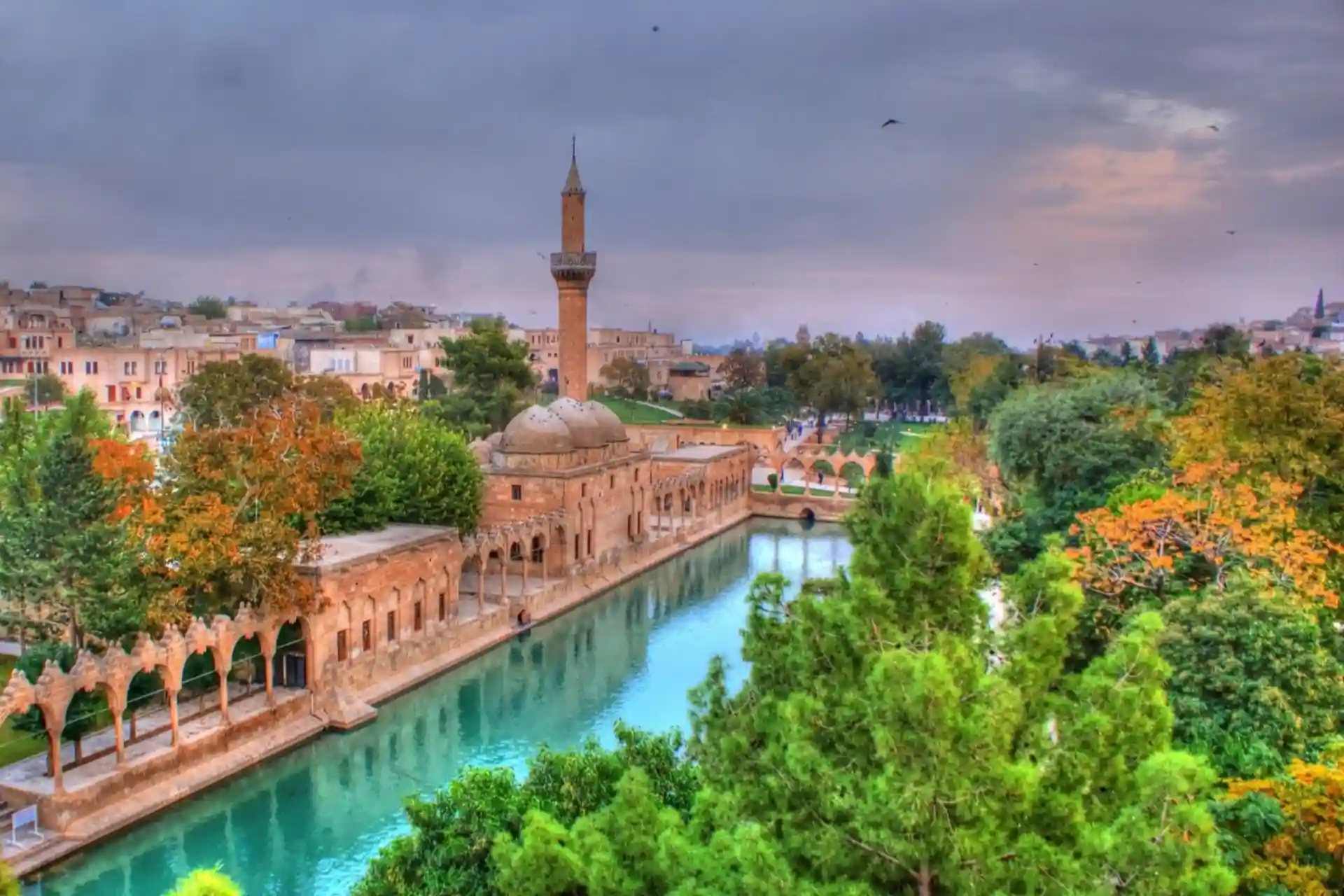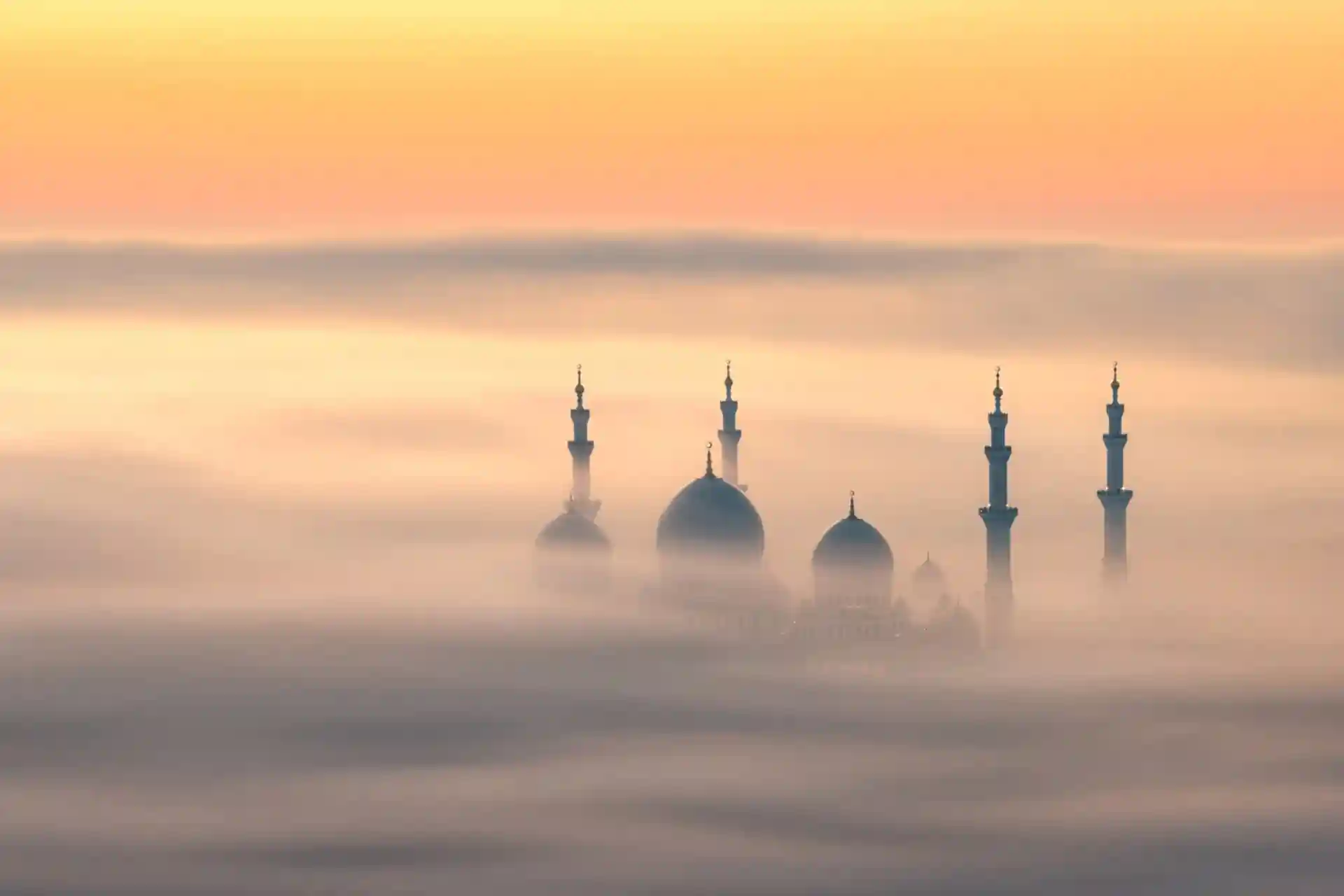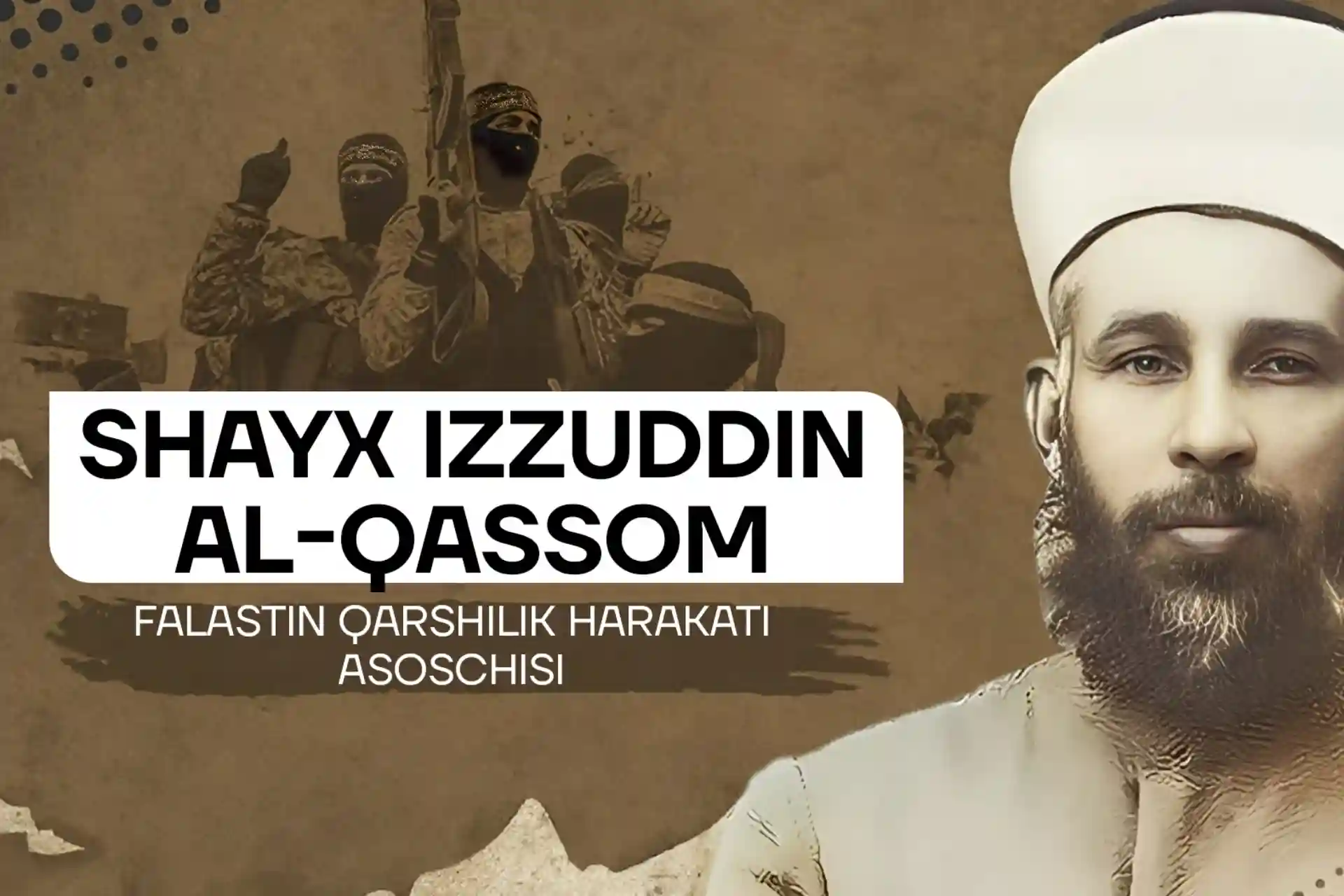"Allah, suffice me for Bilal and his companions!"
During the caliphate of Umar ibn Khattab (634-644), the lands of Iraq and Syria were conquered. Among the captured spoils were the fertile lands of the Persians and Shams in Mesopotamia. Many, including Bilal ibn Rabah, were of the opinion that these lands should be divided among the Muslims. Umar's idea was to leave those lands undivided. Umar said: "O Allah, suffice me for Bilal and his companions!" said. This situation continued for two or three days or more. Then Umar, may Allah be pleased with him, said : "I found a proof for this, Allah Almighty said in His Book ...
During the caliphate of Umar ibn Khattab (634-644), the lands of Iraq and Syria were conquered. In these lands, Muslim soldiers captured unprecedented spoils. Among those captured were properties that the Muslims had not previously encountered in the deserts of Arabia. Even so, it was the fertile lands of the Persians and Shamians in Mesopotamia (between the two rivers) adapted to irrigated agriculture. After the conquest of these lands, a question arose before the Muslims: should the agricultural lands in the conquered lands be distributed among the Muslim armies as booty or should they remain with their owners?
Bilal and his companions asked Umar ibn Khattab, may Allah be pleased with them, to divide the lands in Iraq and Syria that Allah had given them, saying: "Divide the lands among those who occupied them, just as you distributed the booty to the soldiers who captured it."
The continuation of the story is narrated by the great jurist of the Hanafi sect, Abu Hanifa's student, Abu Yusuf, in his work "Kitab al-kharaj":
When Umar, may God bless him and grant him peace, Sa'd ibn Abu Waqqas conquered Iraq, he wrote to him the following letter: "But bad! Your letter has reached me that the people are asking you to distribute among them the spoils of war and the spoils of favor that God has given them. When this letter of mine reaches you, inspect the horses and weapons that the soldiers captured and brought to you, and distribute them among the captured Muslims. Leave the lands and the rivers to those who live there so that they may remain for the Muslims. If you divide them among those who have earned them, there will be nothing left for those who follow .
I ordered you to call to Islam whoever you come into contact with before they fight with them. Whoever answers your call before the war starts, he will be a Muslim. What is given to the Muslims is given to him, and what is required of the Muslims is also required of him, and a share is allocated to him from Islam. Whoever answers your call after war and defeat will be a Muslim. But his property belongs to the people of Islam, because they acquired his property before he accepted Islam. This is my command and my will to you!”
Umar asked the people for advice about the distribution of the lands of Iraq and Syria that Allah had given to the Muslims. They said that they want their rights and the lands they have acquired to be distributed to them. Then Umar, may Allah be pleased with him, said: "What will the Muslims who come after see the land distributed, inherited from their fathers and occupied by those who cultivate it (farmers)?" No, that's not the solution!” he said.
Abdurrahman ibn Awf asked Umar: " Then what is the solution?" Lands and cultivators - what is not what Allah has given to Muslims?'' he said.
Umar: "Not as you said, I don't think so. God will not grant after me the conquest of a city where so much will be gained. Maybe hard days will come to Muslims. If I divide the land of Iraq with its cultivators (farmers) and the land of Syria with its cultivators (farmers), how will the borders be protected? What will happen to the children and widows of the people of Syria and Iraq in these and other cities?"
The people asked Umar again and again to divide the land among them, saying: "Would you leave what Allah has given us with our swords to the people who did not take part in its acquisition, their children and grandchildren?" - they said. Then Umar, may Allah be pleased with him, did not go beyond saying: "This is my opinion." And they said: "Take advice!" they said.
Umar, may Allah be pleased with him, consulted with the first emigrants and their opinion did not come from the same place. Abdurrahman ibn Awf believed that their rights should be distributed among themselves. Uthman, Ali and Talha agreed with Umar.
Then Umar, may God bless him and grant him peace, sent fifteen men from the Ansar who were old and highly respected. When they gathered, Umar praised God as he deserved and said, “I ask nothing of you except that you help me in fulfilling my duties. I am one of you and the truth is on your side today. Someone may be against me, and someone may agree with me. I don't want you to follow my will, you have the book of God that tells the truth. I swear to Allah, whatever I said of my own free will, I only wanted to make the truth come true."
They said: "Speak, O Commander of the Faithful, we will hear you."
Umar said: I heard these people claiming that I am oppressing them regarding their rights. I seek refuge in Allah from oppression. If I do wrong and give to others what belongs to them, I will be one of the wretched. I believe that after the lands of Kisro there are no other lands left to conquer. God has given us their goods, lands and farmers as booty. I distributed the goods they took as booty among the rightful. I took out one-fifth of it and sent it to the appropriate places, and I am responsible for it. I will leave the land undivided with its farmers, and I will impose a tax on the land and a jizya on their lives. They pay these taxes, which benefit the Muslims, the fighters, the children and those who come after them. Don't you know that there must always be people in the borderlands? Do you not know that the great cities of Syria, Jazeera, Kufa, Basra, and Egypt must be provided with troops and paid their salaries? If I distribute the lands and the peasants, where will the supply of the above be obtained?"
All of them said, “You are right, what you say and what you decide is good. If the borders and cities are not guarded by the army and they are not provided, the people of disbelief will return to their cities."
Most of the people were of the opinion that the land should be distributed. Especially Bilal ibn Rabah was firm in this opinion. Umar's idea was to leave those lands undivided. Umar said: "O Allah, suffice me for Bilal and his companions!" said. This situation continued for two or three days or more. Then Umar, may Allah be pleased with him, said: "I found a proof for this, Allah Almighty said in His Book: "You did not ride horses and camels on what Allah gave to His Messenger as booty from them (you did not get it with difficulty), but Allah made His Messengers superior to those whom He willed. put Allah is able to do everything" (Hashr, 6) - he reminded the story of the tribe of Banu Nazir.
Then he recited the following verse: "What Allah has given as booty to His Prophet from the inhabitants of the cities (infidels) belongs to Allah, the Prophet and his relatives, the orphans, the needy and the sojourners, so that it does not become something that is handed down among the rich and the wealthy among you. ” (Hashr, 7). This instruction is common to all other cities.
He also recited the next verse: "(Those spoils again) belong to the poor emigrants who were expelled from their lands and property, because they are those whom Allah wants and pleases, and they help Allah and His Messenger. They are the ones who are faithful" (Hashr, 8).
In order not to confuse them with others, Allah Almighty said: "Those of them (the emigrants) who lived in the land (like Madinah) before and kept the faith (the Ansar) love those who migrated to them (to them) and do not feel envy in their hearts because of what they have been given (booty) and when they are in need, they choose (donate to other needy people). Those who are able to refrain from selfishness, those are the ones who will be saved (in the Hereafter)" (Hashr, 9). This is what has reached us regarding the Ansar, indeed, Allah knows best.
And in order not to confuse them with others , Allah Almighty said: "Those who come after them will say: "O our Lord! Forgive us and those who came before us in faith, and do not harbor grudge in our hearts against those who believed! O our Lord! Indeed, You are the Kind and the Merciful!” (Hashr, 10).
This applies generally to what follows. If this benefit belongs to them all, how can we distribute it to the present and leave nothing to those who come after? After that, it was agreed that the lands would be left undivided and taxes would be collected from them.
Abu Yusuf says: "Umar's idea was to prohibit the distribution of land among the conquerors. What he did was God's help, and it was in accordance with what God had revealed in His Book.
The idea of collecting Khiraj and distributing it among Muslims was auspicious and beneficial for all Muslims. If this had not been done, the people would not have been given wages and food, and consequently the frontiers would not have been defended, and the army would not have been strengthened for military campaigns. Without fighters and mercenaries on the frontiers and cities, how are they protected against the threat of the infidels returning to their lands? God knows best what is good!''
* * *
This story tells about the formation of statehood in the early years of Islam and the skills of a just, humane state leader and politician, great jurist and imam Umar ibn Khattab, may God bless him and grant him peace, in fiqh and political issues. This event alone contains lessons worth writing a large scientific work about the state leader's obligations to the people, values and skill in political management in the science of political science. At the same time, it is an evidence that answers many questions regarding Islamic law and jurisprudential issues.
The idea of Umar, may Allah be pleased with him, to divide not the land, but the tribute from it among the Muslims, was good and useful for all Muslims. As a result, in the next millennium, Islamic countries became the most advanced civilization with the most fair tax policy, the socially needy class is protected by the state, has a high military potential. Millions of people were saved from danger, hunger and poverty. This is what Umar, may God bless him and grant him peace, said about the Muslims of his time: "O our Lord! Forgive us and those who came before us with faith."
Muhammad Zia



